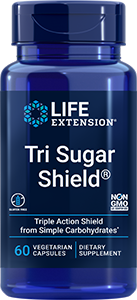Multivitamin use linked with lower colorectal polyp risk
Tuesday, January 7, 2014. An article that appeared online on November 12, 2013 in advance of publication in the British Journal of Cancer describes the findings of Harvard researchers of a lower risk of colorectal adenoma (polyps) in women who used multivitamin supplements.
The current study included 43,641 women enrolled in the Nurses' Health Study II who underwent initial colonoscopy or sigmoidoscopy examinations between 1991 and 2007. Questionnaires completed every two years by the participants beginning in 1991 provided information on the use of multivitamin supplements and whether colon or rectal polyps had been diagnosed. Over the course of follow-up, 2,277 women were diagnosed with colorectal adenomas, of which 1,090 were classified as low-risk and 696 as at high risk of developing into cancer.
Women who reported using multivitamins at any time over the course of follow-up had a 14% lower risk of colorectal adenoma than nonusers. When duration of use was examined, subjects who used vitamins for 20 to 26 years experienced the greatest protective effect, with a 20% lower risk in comparison with those who did not report using a multivitamin supplement.
"The findings from our study support those of the studies in colorectal cancer and suggest that compounds in multivitamins may have long-term effects on the risk of adenoma," the authors write. They remark that folate, beta-carotene, and/or vitamins B6, C, D and E may be responsible for the protective benefits uncovered by the current investigation, although they note that experimental findings suggest that folate inhibits only the early stages of colorectal cancer.
"To our knowledge, this is the first prospective study to investigate the relation of long-term use of multivitamins on risk of colorectal adenoma in a cohort of younger women," the authors announce. "Further studies are needed to better define the duration of use that is required before potential protective effects of multivitamin use can be detected, and whether timing of exposure or duration of exposure is the critical factor in the reduction of risks," they conclude.
|
 |
What's Hot
The results of a study reported online on February 20, 2013 in the American Journal of Clinical Nutrition reveal a protective effect for high blood levels of the amino acid cysteine against the risk of colorectal cancer (CRC). The study also found a greater risk of the disease among those with high levels of homocysteine, of which cysteine is a metabolic product.
The current study included 988 women diagnosed with colorectal cancer over an average of 5.2 years of follow-up after enrolling in the Women's Health Initiative Observational Study. The patients were matched for age, enrollment date and other factors with 988 control subjects. Blood samples collected upon enrollment between 1993 and 1998 were analyzed for cysteine, homocysteine and other factors.
For women whose cysteine levels were among the top 25 percent of participants, the risk of colorectal cancer was 43 percent lower than that of women whose cysteine levels were among the lowest 25 percent. For those whose homocysteine was among the top one-fourth of subjects at greater than 9.85 micromoles per liter, the risk of colorectal cancer was 46 percent higher in comparison with those whose levels were lowest at 6.74 micromoles per liter or less. In their discussion of the findings, Joshua W. Miller and colleagues remark that homocysteine plays a role in inflammation, which increases the risk of developing colorectal cancer and other conditions, whereas cysteine is a precursor for the intracellular antioxidant glutathione, which lowers oxidative stress that can be a cause of inflammation.
"To our knowledge, this is the largest study to date to assess longitudinal associations between homocysteine, cysteine, and CRC risk," the authors write. "The results indicate that elevated homocysteine and low cysteine are risk factors for incident CRC. It remains to be determined if interventions targeted to decrease homocysteine and increase cysteine concentrations, such as B vitamin supplements, will reduce the risk of CRC." |
 |
Latest Products |
 |
|
There are few consistently effective options for the millions of men and women who suffer from certain skin problems. Recent studies suggest that nutraceutical skin-care products containing a whey protein extract, when used alone or in combination with conventional medical treatments, provide clinically significant relief for people suffering from mild-to-moderate skin inflammation.
The effectiveness of whey extract appears to be related to the presence of growth factors, active peptides, and immunoglobulins that ease skin inflammation internally. This has led to a nutraceutical breakthrough in skin management called DermaWhey SkinGest™ PSOR with bioactive sweet whey extract (BSWE).
Studies also show that regardless of the many factors that initiate or exacerbate skin agitation, DermaWhey SkinGest™ PSOR can be effective. |
 |
|
Many aging individuals find themselves under assault from rising blood sugar levels. Despite a healthy diet and exercise, blood sugar levels can rise due to a number of factors including excess gluconeogenesis where by the liver produces glucose from protein. Another issue is the rapid conversion of any starch, including whole grains, into glucose. The result is that even health-conscious, active people can experience higher-than-desired blood sugar levels as they age.
An all-natural, multi-pronged approach has been designed to support the natural balance of key glucose pathways. Tri Sugar Shield™ provides three plant-derived nutrients that—through their rich array of complementary mechanisms—afford an unrivaled level of optimal, broad-spectrum support for healthy glucose metabolism in aging individuals within normal range. |
|
 |
Related Articles
|
BioPQQ® is a registered trademark of MGC (Japan). |








